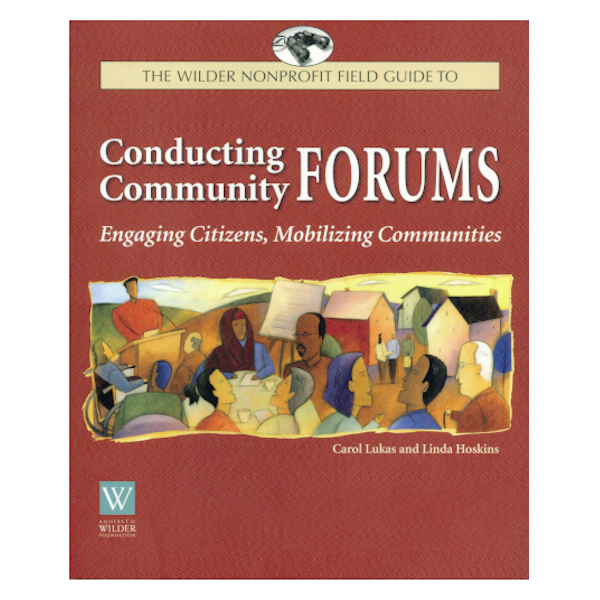Description
Community forums are powerful tools for educating the public, building consensus, focusing attention, and influencing policy.
A solid resource for nonprofits and local governments, Conducting Community Forums will show readers how to:
- Determine if a forum is the best way to achieve their goals
- Clarify the desired outcomes for a forum
- Decide who needs to be involved
- Identify resources needed to support their forum and how to obtain those resources
- Manage the logistics of event planning and execution
- Support follow-up action
- Conduct exciting, successful events that accomplish the your goals.
Sample documents, detailed worksheets, and a comprehensive checklist lead you through the process. And the Forums on a Shoestring sidebars suggest ways to get big results with little time or money.
The guide gives you quick-and-easy access to the information, models, advice, and best practices you need to make the most of your community engagement efforts.
Table of Contents
1. Planning the Forum and Obtaining Resources
- Types of forums
- Forum planning
- Summary
2. Preparing for the Forum
- Create the forum agenda
- Identify resource people
- Handle logistics
- Develop publicity and promotions
- Plan to evaluate forum
- Summary
3. Orchestrating the Event
- Forum coordinator
- Registration
- Facility and food
- Trouble shooting
- Summary
4. Sustaining the Results
- Before the forum
- During the forum
- After the forum
- Summary
5. Conclusion
Appendix A: Sample documents
Appendix B: Worksheets
Appendix C: Helpful resource
Sample
About the Author
Carol Lucas was formerly president of Fieldstone Alliance and Director of National Services for Amherst H. Wilder Foundation. She led the organization’s community forums program for six years. Carol has more than twenty-five years of consulting and training experience with nonprofit, government, community, and private sector organizations.
Linda Hoskins has designed, planned and managed community forums and events for more than twenty years. She is a consultant with the Wilder Foundation.
Guarantee
Conducting Community Forums is guaranteed. If you are not 100% satisfied, you may return it within 30 days for a full refund.

